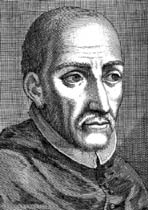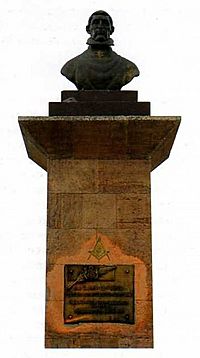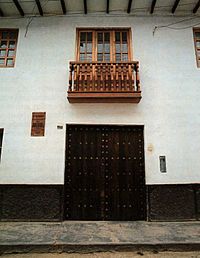Toribio Rodríguez de Mendoza facts for kids
Toribio Rodríguez de Mendoza (1750–1825) was an important Peruvian thinker and teacher. He helped prepare the way for Peru to become an independent country. He was also a priest, a professor, and a leader who spoke out for new ideas.
Contents
Early Life and Studies
Toribio Rodríguez de Mendoza was born on April 15, 1750, in a town called Chachapoyas. At that time, Peru was ruled by Spain as the Viceroyalty of Peru.
When he was a child, he was sent to Trujillo to attend a seminary. This was a special school for people who wanted to become priests. He studied Latin there and prepared for more advanced religious studies.
He later moved to Lima to study at the Saint Toribio of Lima Seminar. He was a very bright student. In 1770, he earned a special degree in Theology from the National University of San Marcos in Lima.
A Career in Education
Toribio's family cared a lot about education. His parents, Santiago Rodríguez and Josefa Collantes, were wealthy and helped set up a school in Chachapoyas.
Toribio started teaching while he was still a student. He was very good at it. In 1771, the Spanish ruler, Viceroy Amat, made him a professor at the Real Convictorio de San Carlos. This school was created after the Jesuits (a religious group known for teaching) were expelled from Peru.
At this school, he taught philosophy and theology. His teaching skills were so impressive that he was offered a teaching position at the National University of San Marcos in 1773. In 1778, he became a presbyter, which is a type of priest.
Leading the Convictorio Carolino
Toribio Rodríguez de Mendoza was called to Lima to lead the Convictorio Carolino school. In 1786, the Viceroy Teodoro de Croix made him the main leader of this important school.
He was a keen reader of new ideas from Europe. He worked to rebuild the school buildings. Today, these buildings are part of the National University of San Marcos. He also introduced new ways of teaching. Rodríguez de Mendoza was one of the first people to imagine a Peru that was free and independent.
A Voice for Change
He believed that everyone should be educated in a common language. He also pushed for the study of natural sciences. He wanted young people to have more career choices than just law or becoming a priest.
He worked to educate future leaders. But he also cared about education for everyone. He thought that if everyone spoke the same language, it would help people of all backgrounds be treated equally.
In 1814, some of his students and friends started a group called the Sociedad Filantrópica. This group spread ideas about freedom and independence, similar to the American Revolution.
As he grew older, some people disagreed with his new ideas. They accused him of spreading ideas that were not allowed. He resigned from his leadership role at the school in 1815. However, the Viceroy did not accept his resignation until 1817.
When the army of San Martin arrived to free Peru, Toribio Rodríguez de Mendoza joined them. Even though he was ill, he helped the new government. He became a member of the first Peruvian Congress. This meant he helped create the new Republic of Peru.
Legacy
A university in Peru, the Toribio Rodríguez de Mendoza National University, is named after him.
See also
 In Spanish: Toribio Rodríguez de Mendoza para niños
In Spanish: Toribio Rodríguez de Mendoza para niños




